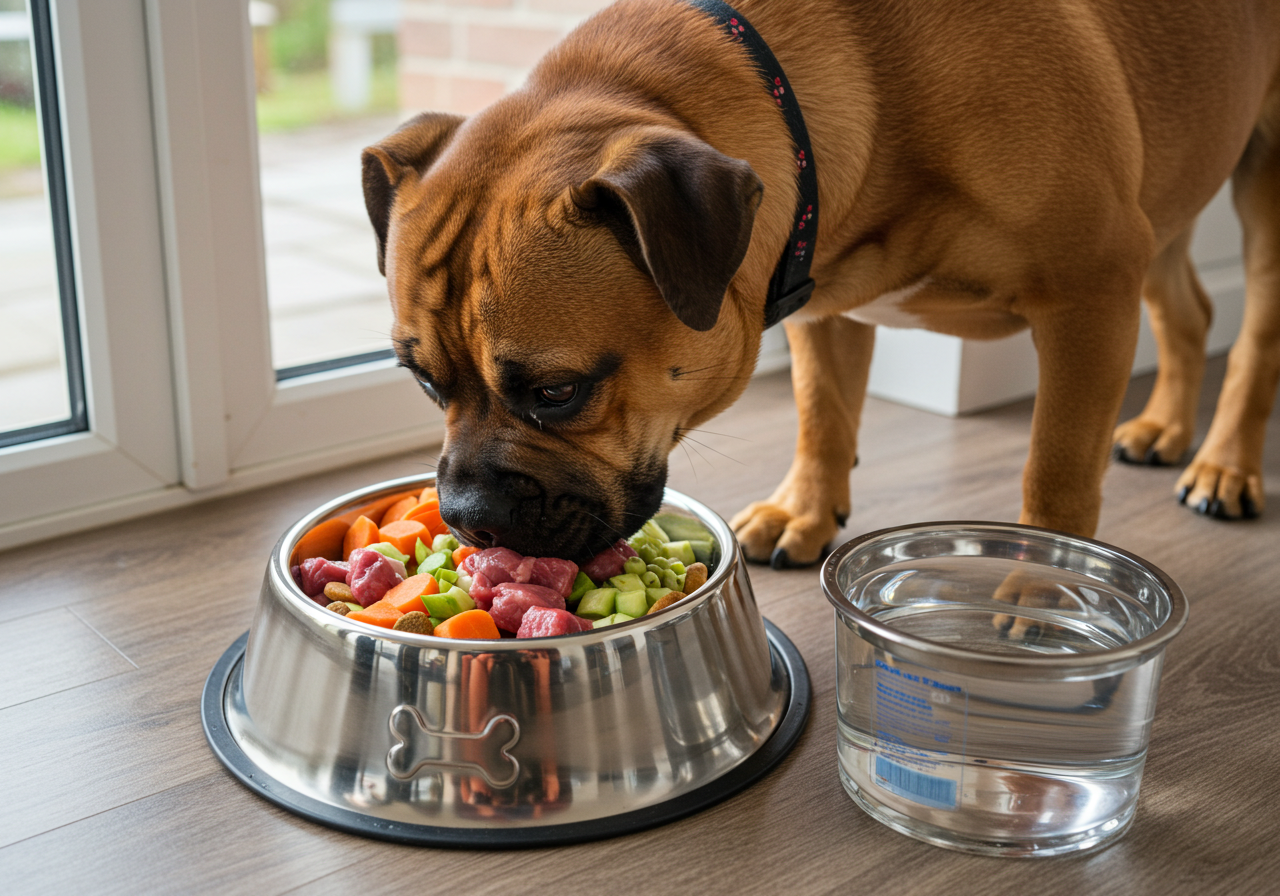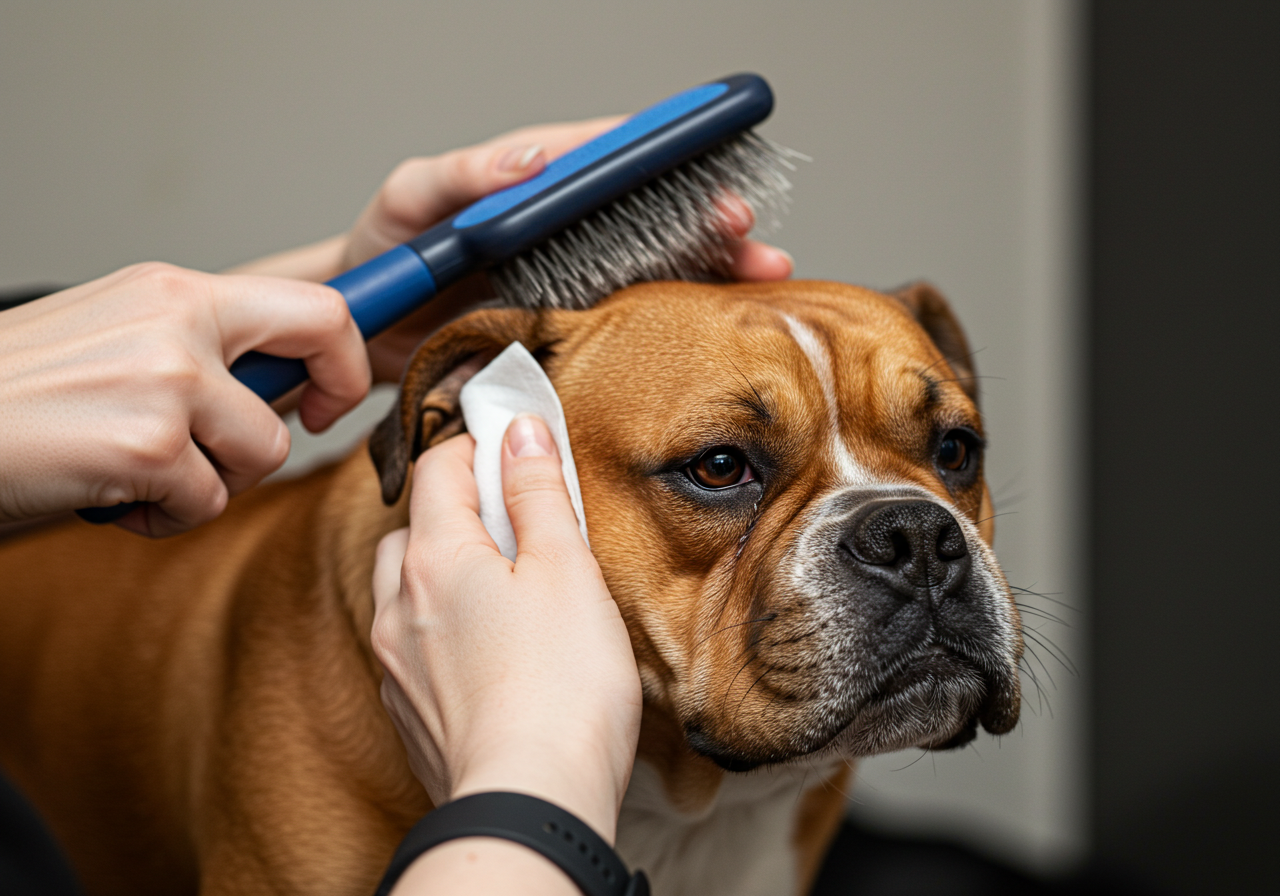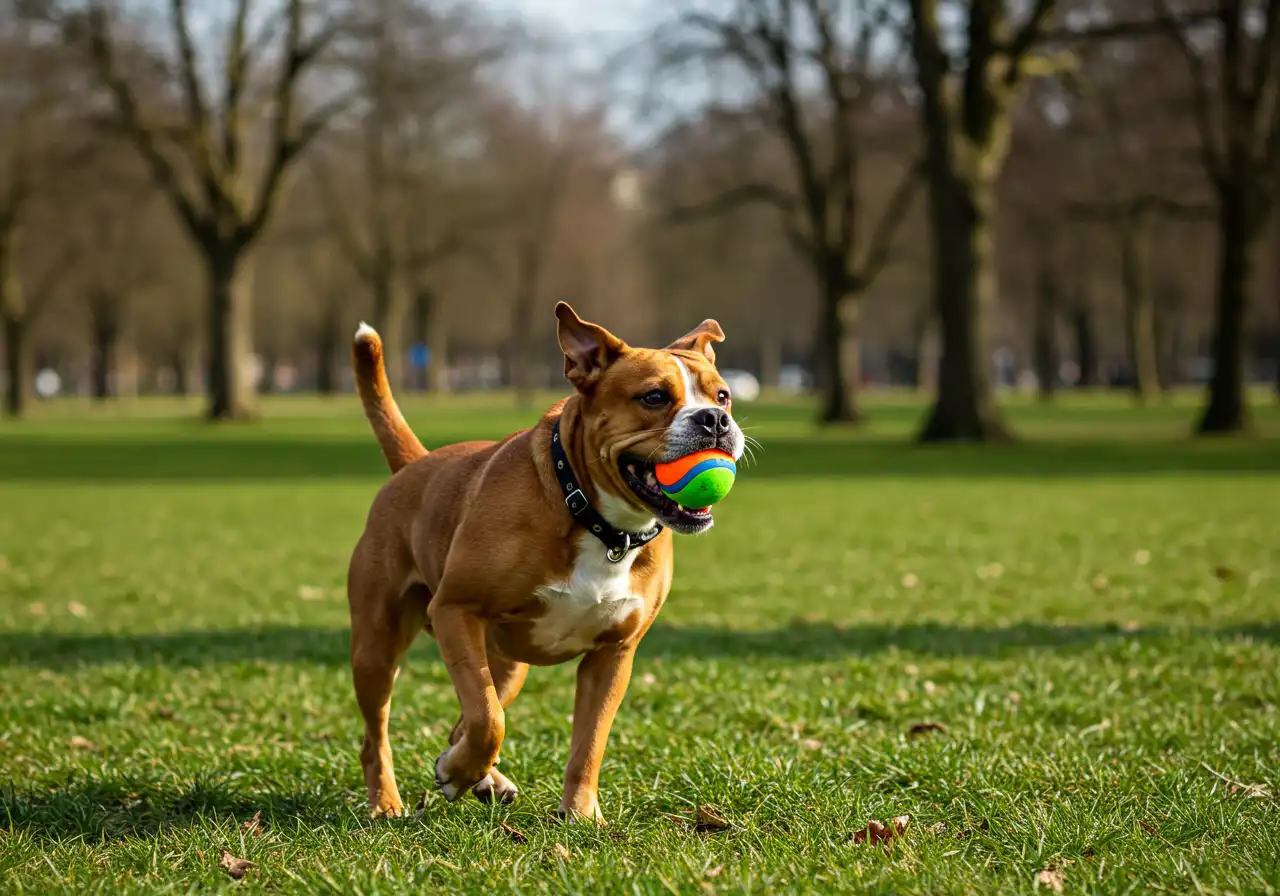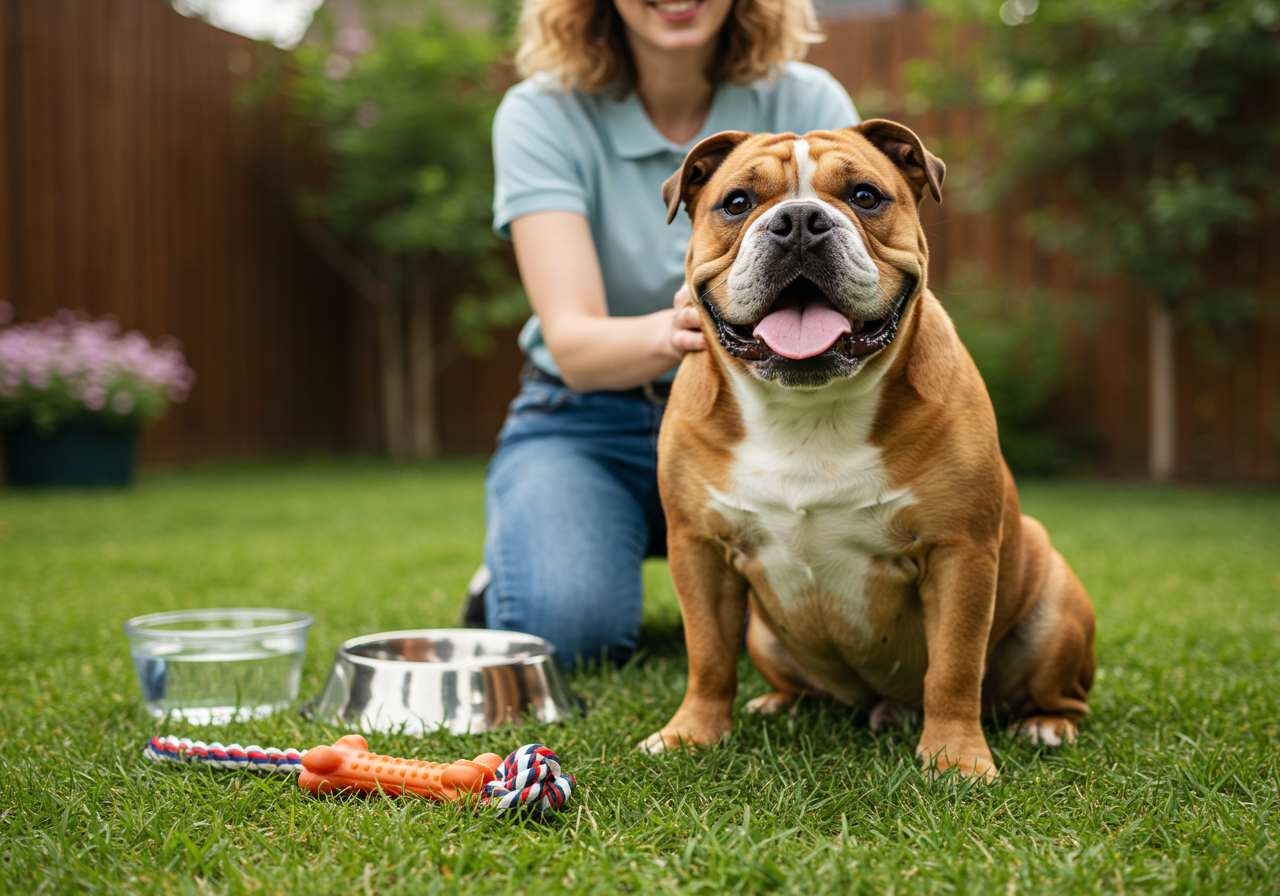The Continental Bulldog, also known as the “Conti,” is a charming and affectionate breed that is becoming increasingly popular for families and dog lovers. This breed is a healthier alternative to its bulldog relatives, with fewer health problems and a friendly, adaptable temperament. If you’re a proud owner of a Continental Bulldog, keeping them healthy and happy is essential for ensuring a long, fulfilling life together. In this post, we’ll cover the top 10 care tips that will help your Continental Bulldog thrive in 2025.

1. Balanced Diet: Fueling Their Health
A proper, balanced diet is one of the most important factors in keeping your Continental Bulldog healthy. This breed requires a high-quality, protein-rich diet to support its active lifestyle and maintain a healthy weight. It’s important to choose dog food that is appropriate for their age, size, and activity level. Look for foods that contain natural ingredients, including lean meats, whole grains, and healthy fats. Avoid fillers like corn or soy, as these can contribute to weight gain and other health issues.
Consider consulting your vet to find the best food for your dog’s specific needs, and always ensure they have access to fresh water throughout the day. As your dog ages, you may need to adjust their diet to reflect any changes in their metabolism or activity level.
2. Regular Exercise: Keeping Them Active
Despite their laid-back demeanor, Continental Bulldogs still need regular exercise to maintain their physical health. These dogs enjoy moderate exercise, such as daily walks or play sessions in the backyard. Since they’re prone to obesity, regular physical activity helps maintain a healthy weight and prevents conditions like joint problems or heart disease.
Continental Bulldogs are particularly fond of spending time with their families, so consider activities that involve interaction, like fetch or tug-of-war. Just make sure to avoid excessive exercise during the summer months, as they can overheat easily due to their thick coats and shorter snouts.

3. Grooming: Keeping Their Coat and Skin Healthy
Continental Bulldogs have a short, easy-to-care-for coat, but regular grooming is still essential to keep them looking their best. Brush their coat at least once a week to remove dead hair and prevent matting. Regular grooming also helps distribute natural oils throughout their fur, keeping it shiny and healthy.
Don’t forget to clean the skin folds on their face. Bulldogs are prone to developing skin infections in these areas if they aren’t cleaned regularly. Use a gentle, pet-safe wipe to clean between their folds, especially after eating or drinking, to prevent the buildup of bacteria.
4. Regular Vet Check-ups: Staying on Top of Their Health
Like all dogs, your Continental Bulldog needs regular veterinary check-ups to monitor their health and catch any potential issues early. It’s important to schedule bi-annual visits to the vet to ensure that they’re in good condition. Your vet can perform routine vaccinations, check for any underlying health conditions, and provide preventive care such as flea and tick treatments or heartworm medication.
As your dog ages, these visits will become even more important. Older dogs may develop conditions such as arthritis, dental disease, or heart problems, so regular check-ups help address these issues before they become serious health concerns.
5. Hydration: Always Provide Fresh Water
Just like humans, your Continental Bulldog needs plenty of fresh water to stay hydrated. Dehydration can lead to a number of health issues, including kidney problems, fatigue, and digestive issues. Always ensure that your dog has access to clean, fresh water throughout the day, especially after meals, walks, or play sessions.
Be sure to refill their water bowl regularly, and keep an eye on how much they drink. If you notice a drastic change in their water intake, it could be a sign of an underlying health problem, and it’s a good idea to check in with your vet.

6. Training and Socialization: Building a Well-Behaved Companion
Training and socialization are essential for ensuring that your Continental Bulldog grows up to be a well-behaved and confident dog. Start training early, using positive reinforcement techniques such as treats and praise to encourage good behavior. Continental Bulldogs are intelligent and eager to please, so they respond well to training.
Socialization is equally important. Expose your Continental Bulldog to a variety of people, animals, and environments while they are still a puppy. Early socialization helps prevent fear-based behavior, anxiety, and aggression as they grow older.
7. Comfortable Living Space: Making Them Feel at Home
Creating a comfortable and safe living environment is key to your Continental Bulldog’s well-being. These dogs are generally low-maintenance in terms of space, but they still need a quiet, comfortable place to sleep and relax. Make sure they have access to a soft bed, preferably in a quiet corner where they can retreat when they need rest.
If you have a backyard, provide a secure and comfortable area where they can play and explore. However, it’s important to remember that Continental Bulldogs are indoor dogs and should not be left outside for long periods of time, especially in extreme weather conditions.
8. Mental Stimulation: Keeping Their Minds Sharp
While Continental Bulldogs are not as high-energy as some breeds, they still need mental stimulation to keep them engaged and happy. Providing puzzle toys, interactive games, and even simple obedience training sessions can help keep their minds sharp and prevent boredom. Boredom can lead to destructive behavior, so it’s important to engage them regularly with activities that challenge their intelligence.
9. Joint Care: Supporting Their Mobility
As they age, your Continental Bulldog may be prone to joint issues such as hip dysplasia or arthritis. To support their joints, consider adding supplements like glucosamine and chondroitin to their diet. These supplements can help reduce inflammation, improve mobility, and keep them comfortable as they grow older.
In addition, avoid excessive jumping or high-impact activities that could strain their joints. Regular, moderate exercise is ideal for keeping them active without overloading their body.
10. Monitor Their Weight: Preventing Obesity
Like many bulldogs, Continental Bulldogs can be prone to obesity if they’re not carefully monitored. Obesity can lead to a variety of health problems, including joint issues, heart disease, and diabetes. Make sure to feed them the appropriate amount of food based on their age, activity level, and size. Avoid giving them table scraps or excessive treats, as these can quickly add up and contribute to weight gain.
Regularly check their weight, and consult your vet if you notice any significant changes. Maintaining a healthy weight through a balanced diet and regular exercise is essential for their overall well-being.
For more information on the best care practices for your Continental Bulldog, check out our other post, Why the Continental Bulldog Is Gaining Popularity in 2025

